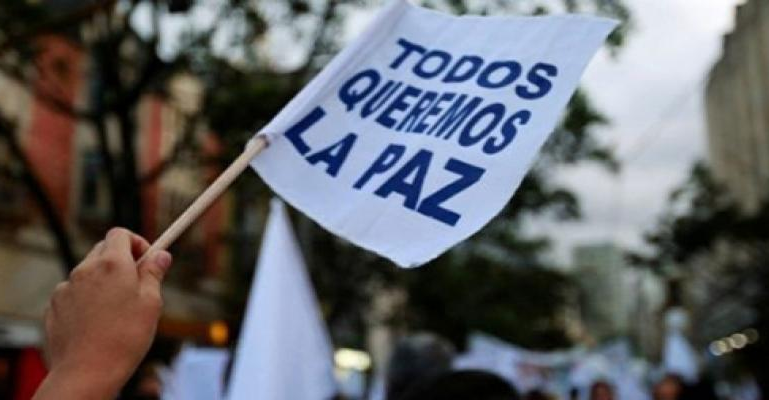
Colombia is working for peace
By María Josefina Arce
Since the 24th of Decemer, a ceasefire declared unilaterally by the guerrilla ELN, National Liberation Army, came into effect, in a gesture of goodwill very well received by the government presided by Gustavo Petro and which has bet on total peace in Colombia.
The Minister of the Interior and government spokesman, Alfonso Prada, pointed out that the ELN has listened to the community that supports peace and demands a de-escalation of the conflict in the different territories of the South American country.
Petro has resumed the dialogue with the insurgent group, paralyzed by his predecessor in the Casa de Nariño, Iván Duque. And to achieve an atmosphere of trust, a first step was to suspend the arrest and extradition orders against the negotiators of that group in order to include them in the political process.
Both parties have already held a first round of talks in Caracas, the Venezuelan capital, which concluded on the 12th. A second round is scheduled for next January in Mexico.
In this first meeting it was agreed to facilitate the return of the Embera indigenous communities to their territories, from which they were displaced by the violence.
But the Colombian authorities have been taking other steps to advance the necessary and long-awaited peace. Thus, they are seeking to implement the different aspects included in the agreement signed in Havana in 2016 between the government of then President Juan Manuel Santos and the once guerrilla Revolutionary Armed Forces of Colombia-People's Army (Fuerzas Armadas Revolucionarias de Colombia-Ejército del Pueblo).
It is the Comprehensive Rural Reform one of the points that is still waiting for its implementation, since the government of former President Iván Duque never made progress in its implementation.
Petro has already reached a historic agreement with FEDEGAN, Colombian Federation of Cattle Ranchers, for the purchase of three million hectares of land to be delivered to peasant families.
Many obstacles were placed in the way of the Havana agreement. The Special Jurisdiction for Peace, in addition to having its constitution delayed due to Duque's objections, has had to work with a low budget. Likewise, four years had to wait for the 16 peace seats in Congress to materialize for those who represent the victims living in territories impacted by the armed conflict.
Moreover, the protection of former guerrilla fighters who bet on peace and laid down their weapons was not effective either. Under Duque's mandate, more than 200 were killed.
Although the road is not easy, there are still irregular armed groups operating in Colombian territory, Gustavo Petro came to the presidency with strength, determined to finally seek peace in Colombia, a debt owed to society, bled by decades of armed conflict and a wave of violence.

